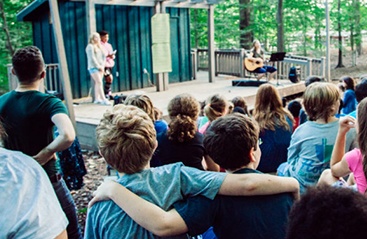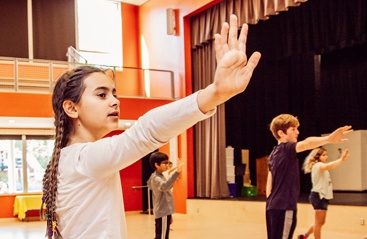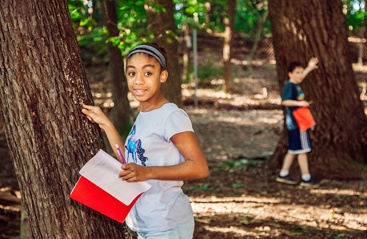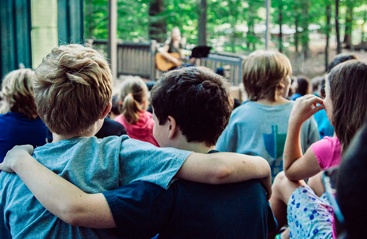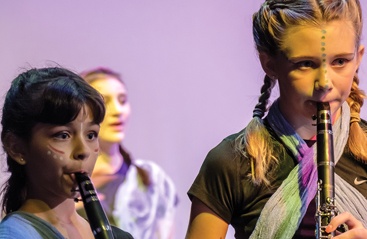
Early Childhood
Welcome to Burgundy Farm Country Day School! This is a wonderful, unique place for children to learn and grow. Children spend their days engaged in discovery, grappling with new challenges, and reveling in a community that encourages risk-taking and values their voice. We invite you to look through our program highlights below, read more about our curriculum, and set up a time to visit our school.
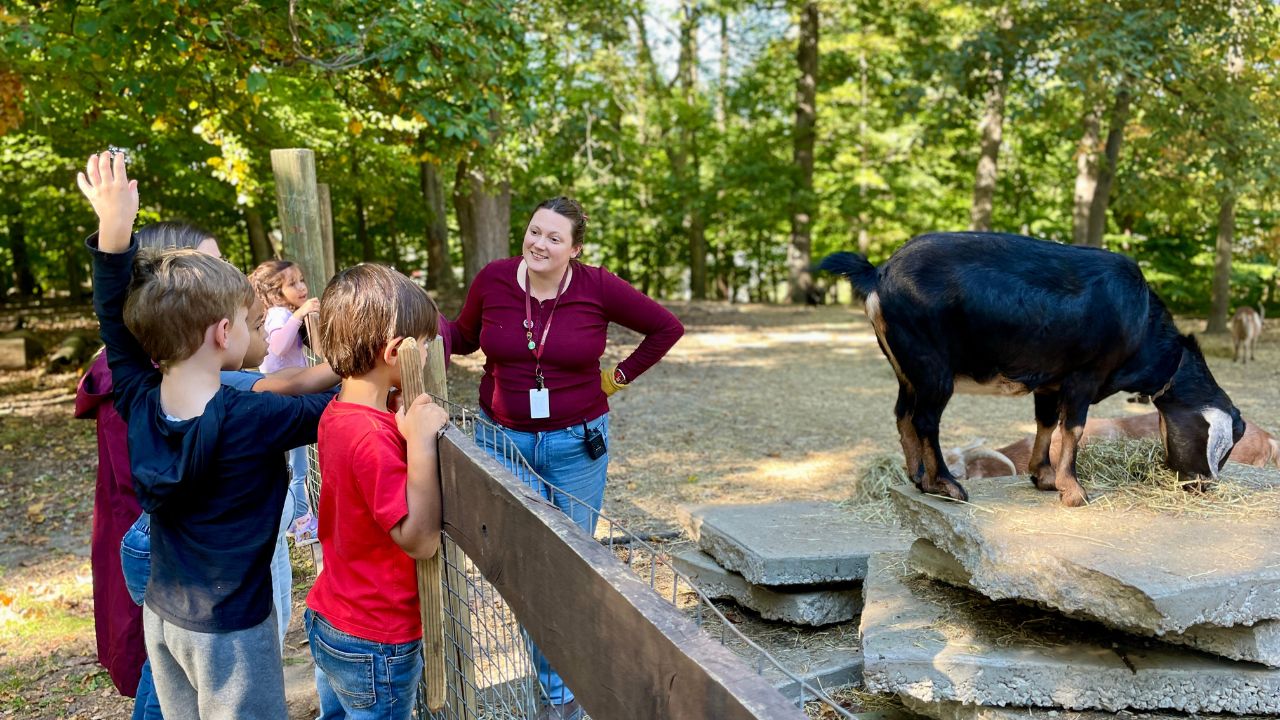
Junior Kindergarten at Burgundy
Our Junior Kindergarten program is thoughtfully structured to encourage flexible learning, open-ended discovery, creativity, independence, decision-making, and problem solving. Learning and play are intertwined to create an intellectually stimulating yet relaxed program. Skills for social interaction, negotiation, turn-taking, friendship building, and self care are modeled and practiced throughout each day. Children investigate and interact at their own speed and developmental level. As they work in the classroom with blocks or with puzzles, they are exploring important mathematical skills such as spatial relations, measurement, or symmetry. During story time and literacy time, they develop strong vocabulary and pre-reading skills. Outside, students explore our campus, visit with our animals, build and create structures from found materials, and work on their gross motor skills through running, jumping, lifting and climbing.
Kindergarten at Burgundy
The Burgundy Kindergarten program reflects the belief that children move through predictable stages of physical, emotional, and cognitive growth, but that their rates and patterns of growth are different. The program is based on a balance between exploration and guided learning. Social-emotional growth is given as much attention as academic or cognitive development. Healthy self-esteem, curiosity and initiative, increasing responsibility for managing daily tasks and resolving conflicts independently receive emphasis throughout the year. Play is at the center of the program and skills and concepts are explored through games, songs, and body motions that help children practice, apply, and extend their understanding.
First Grade at Burgundy
First Graders continue their journey towards becoming independent, creative, and productive thinkers and learners. Students are encouraged to work in groups, to share their work, and to ask questions. In First Grade they learn the value of living and working in a community and they are responsible for classroom jobs. They also learn how to support each other, solve conflicts peacefully, and advocate for their social, emotional and educational needs. A thematic approach is used to integrate all academic areas. Our two First Grade classes come together for snack, recess, field trips and special activities. Students enjoy their first visit to our West Virginia Cove campus which happens during the spring of First Grade. Parents from each family accompany the children on this overnight trip.
My words really can’t do justice what Burgundy has meant to me and my family. I’ve always felt a sense of community since the first time I stepped foot on this campus when my daughter was 2 years old. Yes, we began our journey so many years ago. I felt that my daughter would be embraced, seen and treated as an individual while being folded into a community. They rallied around her when she needed help and celebrated her accomplishments. – Monique, current parent
Inquire Now
Burgundy is a one-of-a-kind independent school for Junior Kindergarten through 8th Grade. We believe children learn best in an inclusive, creative, and nurturing environment that engages the whole child.
3700 Burgundy Road
Alexandria, VA 22303
703.960.3431
Accredited by: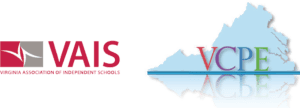
Affiliated with: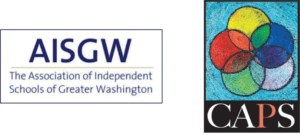
Partners with:
©2025 Burgundy Farm Country Day School
Designed and developed by The Design Channel![]()

